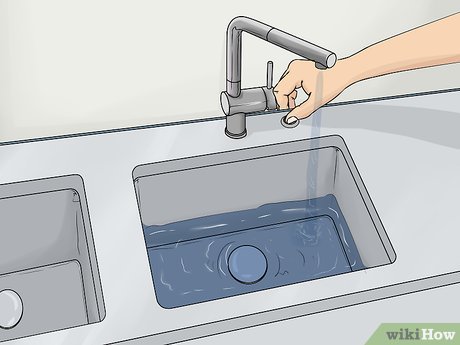A clogged kitchen sink, especially a double sink, can be a major inconvenience. Dishes pile up, water backs up, and the whole kitchen routine grinds to a halt. Understanding the common causes of clogs and having a few effective methods at your disposal can save you time, money, and a call to the plumber. This guide provides a step-by-step approach to diagnosing and resolving clogs in double kitchen sinks, offering practical solutions for a smooth and efficient kitchen experience.
Understanding Double Sink Clogs
Double kitchen sinks, while convenient, can be prone to clogs due to their shared plumbing system. Food scraps, grease, and other debris can accumulate in the drainpipes, leading to blockages. Identifying the source of the clog is the first step to effectively resolving the issue.
Common Causes of Kitchen Sink Clogs
- Food Scraps: Small pieces of food that slip through the drain strainer.
- Grease and Oil: Solidifies in the pipes, trapping other debris.
- Soap Scum: Accumulates over time, narrowing the drainpipe.
- Hair: Can bind with grease and other debris, forming a solid mass.
DIY Methods for Unclogging a Double Sink
Before calling a plumber, try these simple DIY methods. They are often effective for clearing minor clogs.
1. Boiling Water
This is often the simplest and most effective first step.
- Boil a kettle or pot of water.
- Carefully pour the boiling water down the clogged drain.
- Wait a few minutes and check if the water drains. Repeat if necessary.
2. Plunger
A plunger can create suction to dislodge the clog.
- Make sure there’s enough water in the sink to cover the cup of the plunger.
- Cover the second drain opening of the double sink with a wet cloth or stopper to create a seal.
- Place the plunger over the clogged drain and plunge vigorously up and down for several minutes.
- Remove the plunger and check if the water drains. Repeat if necessary.
3. Baking Soda and Vinegar
This combination creates a chemical reaction that can break down clogs.
- Pour one cup of baking soda down the clogged drain.
- Follow with one cup of vinegar.
- Let the mixture fizz for 30 minutes.
- Flush with hot water.
4. Wire Coat Hanger
A straightened wire coat hanger can be used to manually break up and remove the clog.
- Straighten a wire coat hanger, leaving a small hook at the end;
- Carefully insert the hanger into the drain and try to break up or pull out the clog.
- Be careful not to push the clog further down the drain.
- Flush with hot water.
Preventing Future Clogs
Prevention is key to avoiding future clogs. Here are some tips to keep your kitchen sink draining smoothly.
- Use a drain strainer to catch food scraps.
- Avoid pouring grease and oil down the drain.
- Flush the drain with hot water regularly.
- Periodically clean the drain with baking soda and vinegar;
When to Call a Plumber
If you’ve tried all the DIY methods and the sink is still clogged, it’s time to call a plumber. A professional can diagnose and resolve more complex clogs that may be located deeper within the plumbing system.
FAQ: Unclogging Double Kitchen Sinks
Q: Why is my double kitchen sink clogged on both sides?
A: Both sides of a double sink typically drain into a shared pipe. A clog in this shared pipe will affect both sides.
Q: Can I use chemical drain cleaners?
A: While chemical drain cleaners can be effective, they can also damage your pipes and are harmful to the environment. It’s best to try DIY methods first.
Q: How often should I clean my kitchen sink drain?
A: It’s a good idea to clean your kitchen sink drain at least once a month to prevent clogs from forming.
Q: What should I do if I accidentally dropped something down the drain?
A: If you dropped something solid down the drain, try to retrieve it with a wire coat hanger or a grabber tool. If you can’t reach it, call a plumber.

